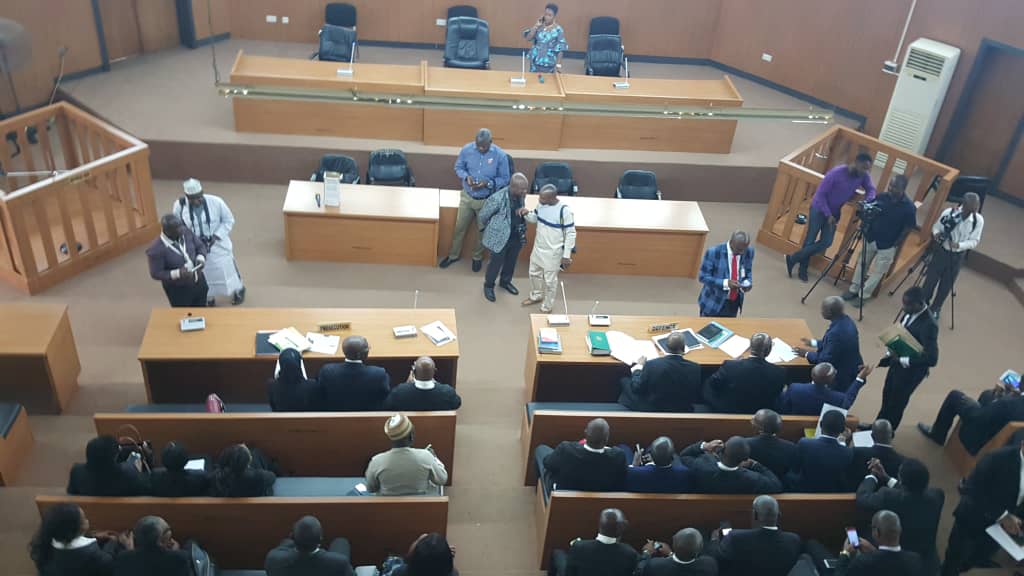Festus Keyamo, spokesman of the All Progressives Congress (APC) presidential campaign, says a presidential or governorship candidate does not need to have the West African Examinations Council (WAEC) certificate to contest an elective position.
Keyamo was reacting to the certificate scandal of Ademola Adeleke, governorship candidate of the Peoples Democratic Party (PDP) in Osun state.
Several politicians have been caught in certificate scandal. There was a controversy involving President Muhammadu Buhari WAEC certificate shortly before the 2019 elections.
A high court sitting in Abuja had nullified the candidature of Adeleke over allegations that he did not possess secondary school certificate (SSCE).
Advertisement
The certificate is required for an elective position, according to section 177 (d) of the 1999 constitution.
The secton reads: “A person shall be qualified for election to the office of Governor of a State if
(a) he is a citizen of Nigeria by birth;
(b) he has attained the age of thirty-five years;
(c) he is a member of a political party and is sponsored by that political party; and
(d) he has been educated up to at least School Certificate level or its equivalent.”
For the position of president, section 131 (d) demands “he has been educated up to at least School Certificate level or its equivalent”.
Advertisement
Keyamo, however, argued on his Twitter handle that school certificate in the context demanded by the constitution is “primary 6 School Leaving Certificate plus the ability to just speak, write, understand and communicate in English language to the satisfaction of INEC. No WAEC certificate is needed”.
“Yes. Section 318 of the 1999 Constitution defines “School Certificate or its equivalent” to mean primary 6 School Leaving Certificate plus the ability to just speak, write, understand and communicate in English language to the satisfaction of INEC. No WAEC certificate is needed,” Keyamo wrote.
“By the definition of “School Certificate or its equivalent” in section 318 of the 1999 const. u don’t need a WAEC certificate to become President or Governor, but if you present a FORGED WAEC or other certificate to INEC for any office you will be disqualified. #OsunStateScenario
“Forgery occurs when the supposed author of a document denies ever making it or denies its authenticity. WAEC has confirmed the authenticity of PMB’s certificate by issuing an attestation of it. Case closed. In #OsunCaseScenario WAEC has denied the authenticity. See d difference?
Advertisement
“Let me end my free lecture series by saying that the crux of the matter is that if you don’t have a WAEC certificate, there’s no need to go ahead & forge one in a bid to be Governor or President. You can still be qualified, regardless. That’s the mistake made in #OsunCaseScenario.”
Yes. Section 318 of the 1999 Constitution defines "School Certificate or its equivalent" to mean primary 6 School Leaving Certificate plus the ability to just speak, write, understand and communicate in English language to the satisfaction of INEC. No WAEC certificate is needed https://t.co/kUMUCZbF5i
— Festus Keyamo, SAN, CON, FCIArb (UK) (@fkeyamo) April 14, 2019
Advertisement
By the definition of "School Certificate or its equivalent" in section 318 of the 1999 const. u don’t need a WAEC certificate to become President or Governor, but if you present a FORGED WAEC or other certificate to INEC for any office you will be disqualified. #OsunStateScenario
— Festus Keyamo, SAN, CON, FCIArb (UK) (@fkeyamo) April 15, 2019
Advertisement
Forgery occurs when the supposed author of a document denies ever making it or denies its authenticity. WAEC has confirmed the authenticity of PMB’s certificate by issuing an attestation of it. Case closed. In #OsunCaseScenario WAEC has denied the authenticity. See d difference?
Advertisement— Festus Keyamo, SAN, CON, FCIArb (UK) (@fkeyamo) April 15, 2019
Advertisement
Let me end my free lecture series by saying that the crux of the matter is that if you don’t have a WAEC certificate, there’s no need to go ahead & forge one in a bid to be Governor or President. You can still be qualified, regardless. That’s the mistake made in #OsunCaseScenario
— Festus Keyamo, SAN, CON, FCIArb (UK) (@fkeyamo) April 15, 2019
WAEC had confirmed that Adeleke sat for its examination in 1981 but two witnesses, who invigilated the National Examination Council (NECO) examination at Ojo-Aro Community Grammar School, Osun in 2017, said they did not see the senator in the exam hall.
The senior advocate said there was no need for a candidate to “forge” the certificate as it was not needed, quoting section 318 of the constitution.
Part of the section reads: “School Certificate or its equivalent” means (a) a Secondary School Certificate or its equivalent, or Grade II Teacher’s Certificate, the City and Guilds Certificate; or (b) education up to Secondary School Certificate level; or (c) Primary Six School Leaving Certificate or its equivalent and – (i) service in the public or private sector in the Federation in any capacity acceptable to the Independent National Electoral Commission for a minimum of ten years, and (ii) attendance at courses and training in such institutions as may be acceptable to the Independent National Electoral Commission for periods totalling up to a minimum of one year, and (iii) the ability to read, write, understand and communicate in the English language to the satisfaction of the Independent National Electoral Commission, and (d) any other qualification acceptable by the Independent National Electoral Commission.”
Add a comment







